Seventh Row’s editors pick the emerging actors to watch at TIFF 2021, in films from Benediction to The Worst Person in the World.
Click here to find all of our TIFF 2021 coverage and sign up to our TIFF newsletter.
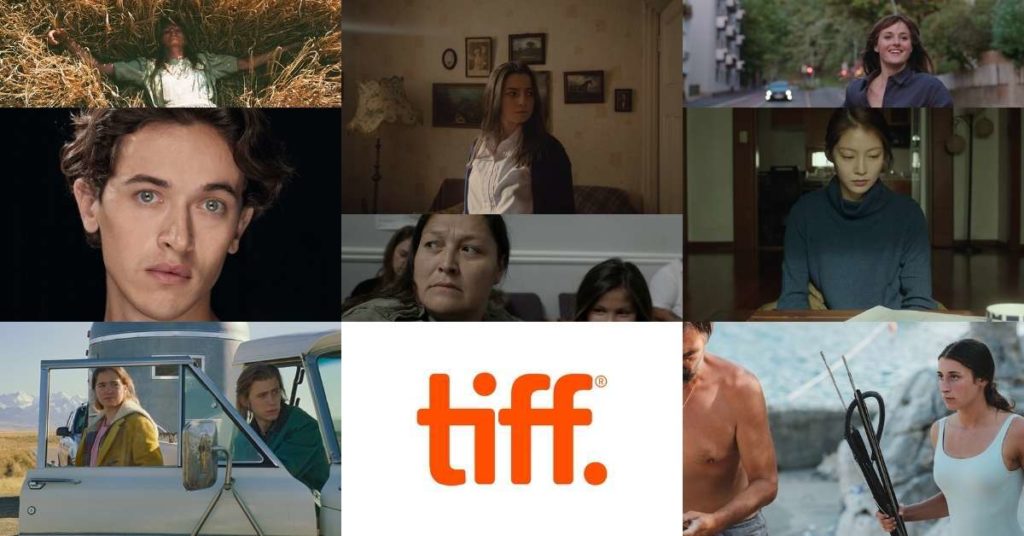
We’re running a daily TIFF 2021 newsletter to give you all our reactions to the best new films as they premiere. Click here to sign up for free.
It’s the first day of the Toronto International Film Festival (TIFF), and anticipation is high for reactions to the buzziest new films starring the world’s biggest actors. But while film festival season is a time for big names like Kristen Stewart and Benedict Cumberbatch to collect their laurels, it’s also a time for stars to be made. Every year, before the festival begins, we make a list of the emerging actors to watch out for in this year’s films. This year that includes actors from Benediction, The Worst Person in the World, Petite Maman, and more.
Cherish Violet Blood, Scarborough
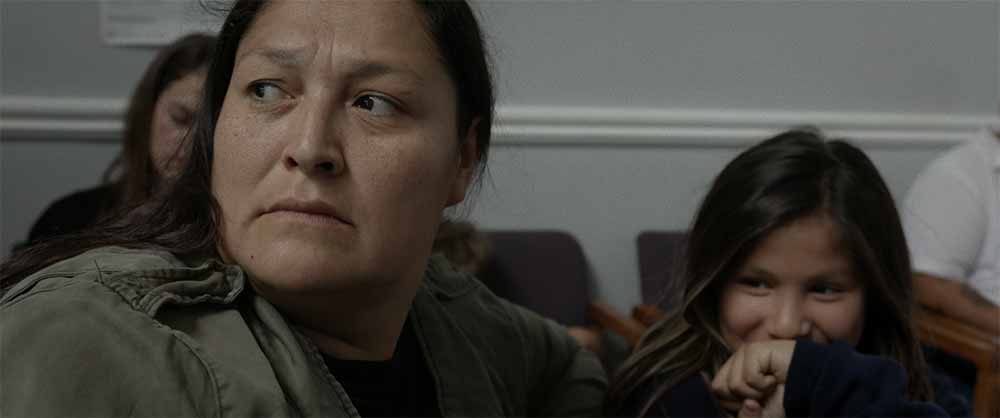
Blackfoot actress Cherish Violet Blood is so stunningly composed, controlled, and understated in Scarborough, it left me wondering why I’d never seen her before in a film. Despite her very few screen credits, she’s an established and accomplished theatre actress, but I hope her wonderful turn in Scarborough will translate to more film work in the future.
She plays Marie, an exhausted single mother to two children, who’s kind, loving, and trying her best, but struggling to cope with the sheer amount of responsibilities piled on her shoulders.
In her first scene, she visits a doctor about getting her son a possible autism diagnosis, but the doctor dismisses her concerns, saying it’d be easier to just leave him undiagnosed until further notice. Blood’s face and voice says it all in this scene: there’s a note of indignation, but Blood is otherwise calm, keeping her emotions in check. She only rolls her eyes when the doctor is looking away. The tension in her body comes out in her hands, which are captured in closeup as she clasps them against her knees. Her anger is tempered by sheer exhaustion and the long-held knowledge that, as a marginalised woman, standing up for herself against authority figures is often a losing game. Right off the bat, Blood conveys so much about this woman who is constantly fighting battles that she doesn’t always win. Orla Smith
Tom Blyth, Benediction
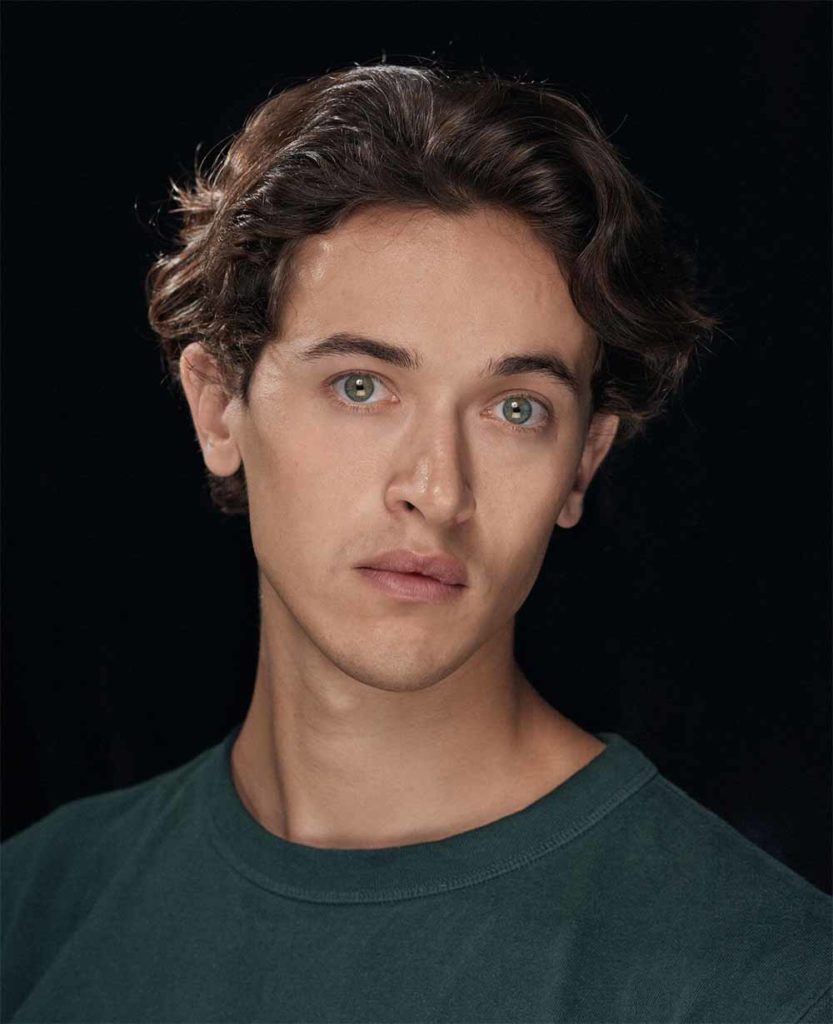
For a film that is a Jack Lowden showcase featuring a parade of samey ‘pretty boy’ lovers for the protagonist — he sure had a type — Tom Blyth stands out as one of the few actors worthy of tearing your gaze away from Lowden. Blyth has the distinction of playing one of poet Siegfried Sassoon’s only lovers with a heart and something going on between the ears. The Juilliard grad makes his mark in this small but substantial part as the man thrown over by Ivor Novello in favour of Sassoon, who eventually has a brief fling with Sassoon, too. He mirrors Sassoon’s wry wit and easy vulnerability, moving from cynical clever barbs one minute to open-faced hopefulness in the next. Alex Heeney
Calam Lynch, Benediction
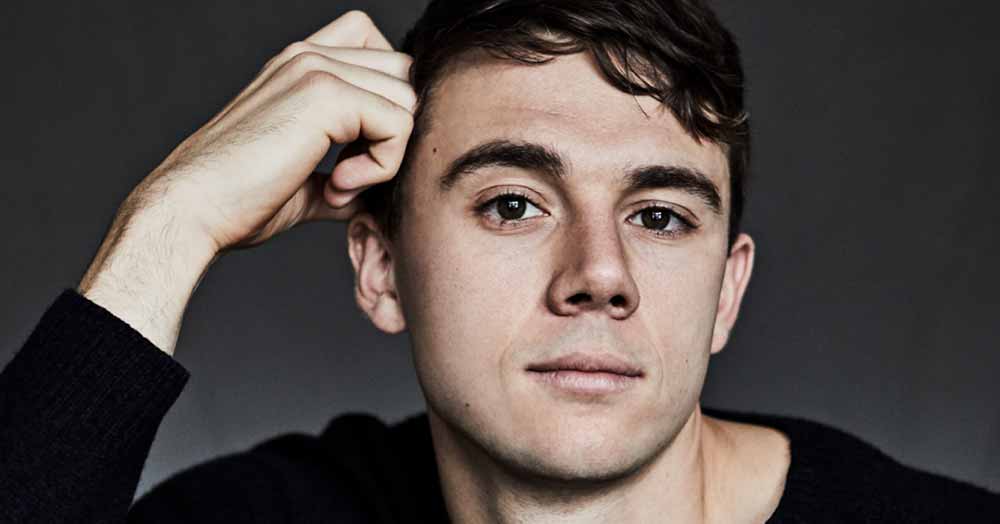
Playing the younger version of a character that will turn out to be Anton Lesser is an act you don’t really want to precede as a young actor, but Calam Lynch acquits himself gracefully, itself a high compliment. Lynch’s Stephen is one of Sassoon’s more ill-advised romantic partners, whose high camp disposition and catty remarks could make him one-note (as Jeremy Irvine’s Ivor Novello very much is). But in Lynch’s hands, even as he’s hamming it up with rouge in the mirror, there’s a quiet desperation and sadness to him, like the emcee in cabaret. He parties because he must, lest he think about his own mortality and choices. It makes for a more realistic pairing with Sassoon, because both have the tendency to put on one face for the crowd while being unexpectedly easy to prick (oh dear, pun intended?). If, like me, you spend the film wondering why you recognize him, it’s because he’s the spitting image of his mother, the wonderful actress Niamh Cusack. AH
Hazel Doupe, You are Not My Mother
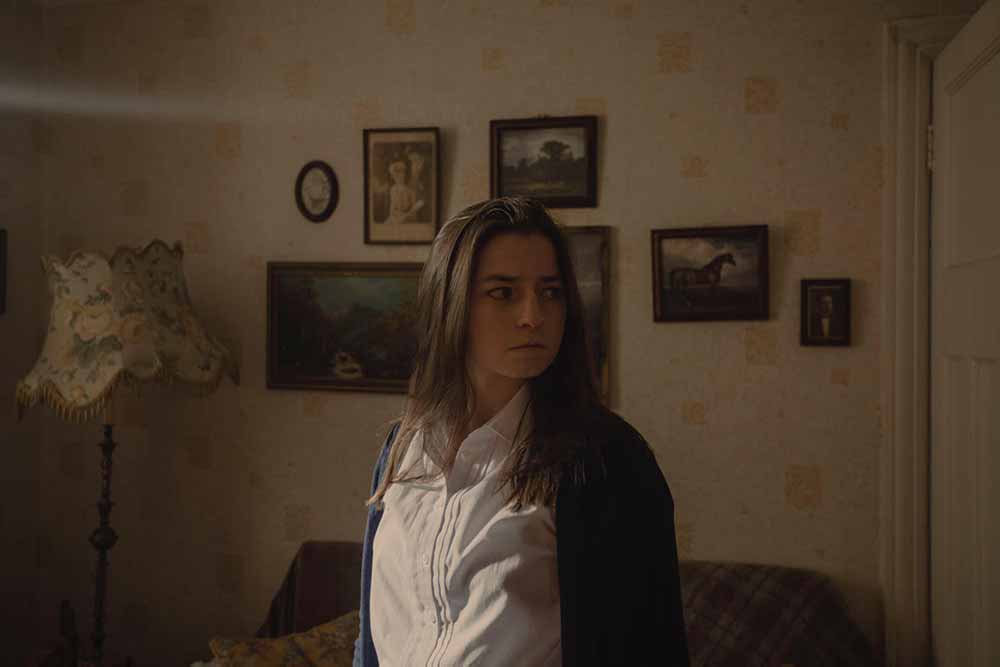
Hazel Doupe first came to my attention as the fifteen-year-old star of the 2018 TIFF Discovery title Float Like a Butterfly, playing an Irish Traveller and budding pugilist with equal parts fierceness and vulnerability. Back in 2018, I wrote, “It’s Hazel Doupe’s sensitive portrayal of a smart, strong-willed and talented young woman, butting up against the expectations of her gender, that give the film its heart and soul.” Director Carmel Winters was also wowed by her, telling me, “I remember talking to Martina, my producer, about her afterwards, saying how she reminded me of a young Jodie Foster. Another actor confided to me that it was like a masterclass in acting, watching her in action. Her access to her instinct is immediate and sure. It is beautiful to watch.”
You Are Not My Mother is Doupe’s second starring role on film, after making a quick appearance in Calm with Horses in 2019, and this time, she’s taking on the horror genre. Having gotten her start on the stage, Doupe is immediately at home in a film that relies on long takes that watch her reaction to the world around her. Doupe stars as teenage Char, whose mother is bipolar but may or may not have been replaced by some kind of demon. Doupe is the highlight of the film: the way she twitches and stills in utter fear, whether of her bullying peers or her strangely behaving mother, and every time she smiles, a rarity for Char, it gives you the same hope it does Char that maybe something good can happen after all. AH
Garcija Filipovic, Murina
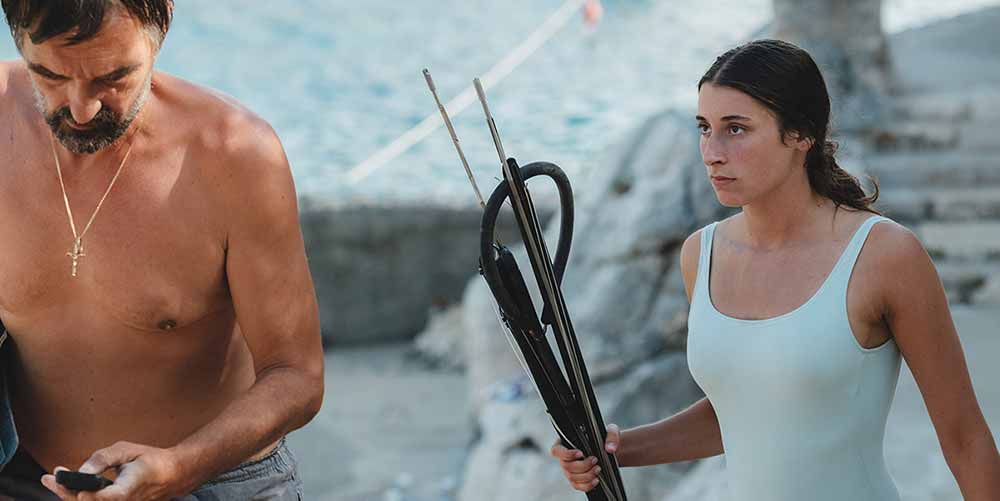
Croatian actress Garcija Filipovic makes a captivating feature debut as the titular Murina in the Cannes Caméra d’Or winner from Antoneta Alamat Kusijanović. Over the course of about a week, Kusijanović observes Murina, who lives with her emotionally and physically abusive father and her mother who is both victim and enabler. Seeing a spark between her mother and her father’s visiting friend, she looks to him for salvation as an escape from her oppressive home.
Filipovic imbues Murina with the poised worldliness of someone who had to grow up too fast and the sometimes awkward movements of a child still figuring out how the adult world works. Kusijanović regularly watches Flilpovic observing the world, often with insight, and often missing something key. It’s a film about a teenager who keeps getting beaten down but has found inner strength to get through it. Filipovic is quietly convincing as a girl who is trapped and unable to fully fight back, but smart and resourceful enough to make it through. AH
Gong Seung-yeon, Aloners
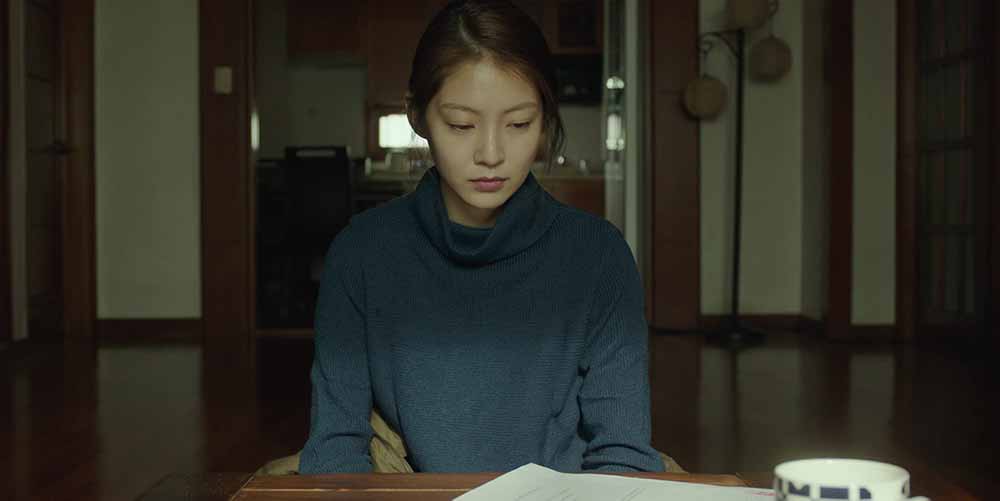
Lead actress Gong Seung-yeon is the highlight of Aloners, a film about Jina (Gong), a lonely call centre worker who avoids almost all social contact. Her face remains passive for most of the film, but her body language tells us everything about Jina’s state of mind. She seems perpetually downturned, her posture slouched, head hanging, and hands stuffed inside her coat pockets. Gong communicates just how exhausted Jina is by life, so it’s easy to empathise with her unwillingness to interact with other human beings. She’s always compelling to watch, despite Jina’s constant malaise. OS
Flora Ofelia Hofmann Lindahl, As in Heaven
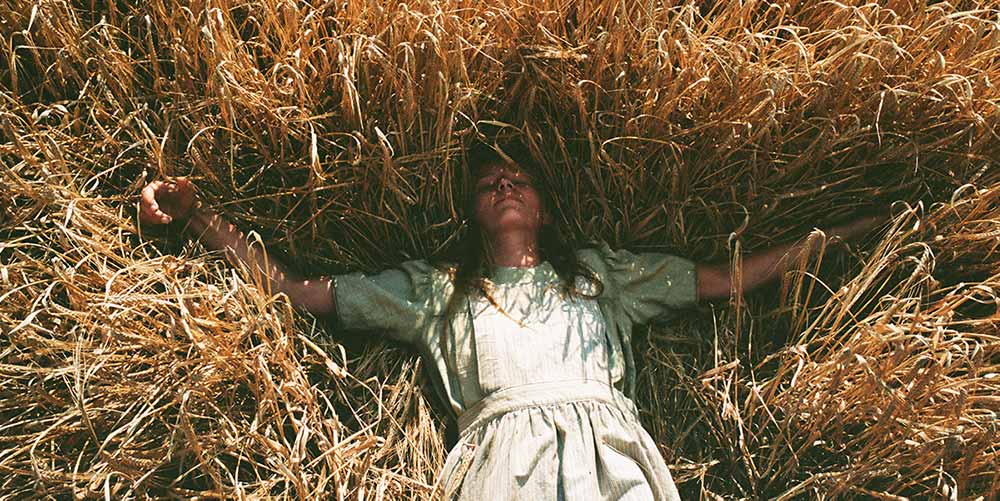
Having starred in the Danish television series Cry Wolf and appeared in just one other feature, Land of Glass (Jeppe Vig Find and Marie Dalsgaard Rønn, 2018), As In Heaven is a true showcase of actress Flora Ofelia Hofmann Lindahl. Lindahl stars as Lise, a teenager on the cusp of adulthood who, over the course of one night during which her mother goes through a terrible labour, and she stands to lose everything that matters to her. Director Tea Lindeburg keeps the film grounded in Lise’s perspective, which often means the camera stays with or observes Lindahl. It’s a very interior story about a girl finding her place in the world, and how little choice she has about it, so it’s all about watching Lindahl react to every situation: spying on her mother from behind the door, blaming herself for any transgression that could have caused the seemingly impending tragedy, and interacting with her cousins as they wait for news. AH
Nina Meurisse, Petite Maman
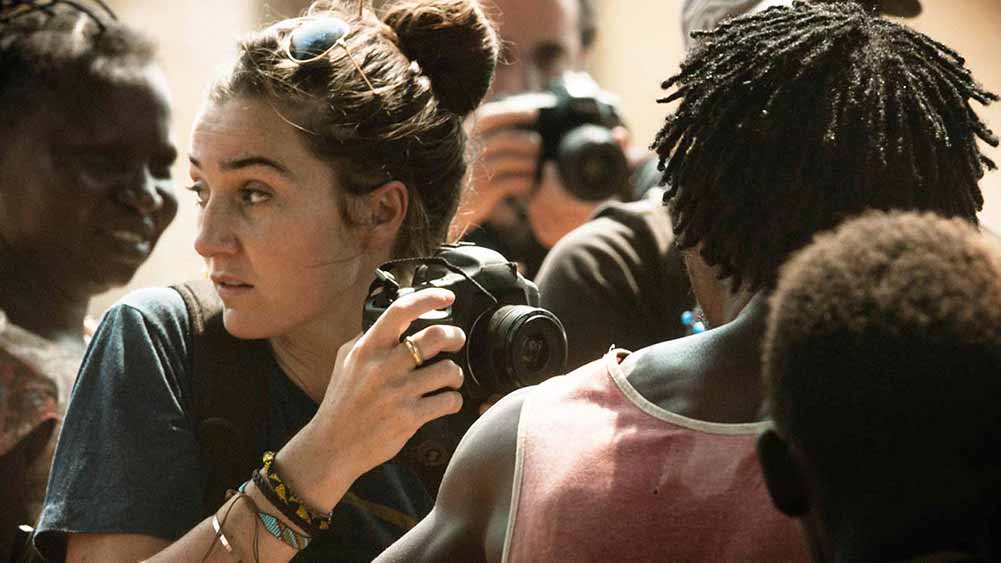
I first took notice of Nina Meurisse as the idealistic war photographer Camille Lepage in Camille (Boris Lojkine, 2019), which screened at My French Film Festival in February. I was completely impressed by Meurisse’s ability to show Lepage’s foolhardy gumption, as well as her unmatched ability to listen to the people around her, learn their stories, and empathize with them — something her male colleagues don’t even attempt. In March, at the Berlinale, Meurisse played a supporting role in Céline Sciamma’s Petite Maman as the grown up version of the protagonist’s mother. In just a few scenes, in which we don’t always even see her face, her slumped, exhausted body language reveals her grief. Even when she’s busy thinking about other things, there’s still always warmth in her exchanges with her daughter, especially in a scene toward the end where they come to an unexpected understanding as equals. AH
Violet Nelson, Night Raiders
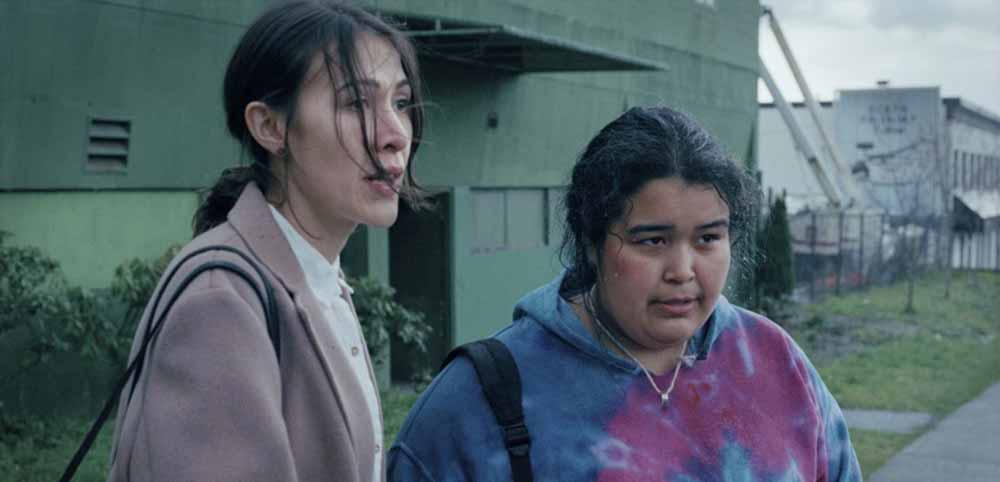
Young Kwakwaka’wakw actress Violet Nelson had a showcase breakout role in The Body Remembers When the World Broke Open (2019), starring opposite Elle-Máijá Tailfeathers in a two-hander shot as a single take. She impressed as a withdrawn and defensive pregnant teen reluctant to accept help as a domestic abuse victim. But it was her supporting turn in this year’s Berlinale title Night Raiders, which is also playing TIFF, an Indigenous sci-fi film also starring Tailfeathers, that made us really sit up and take notice of Nelson. She plays a member of an Indigenous resistance group who proves herself to be a badass leader, capable of taking charge. It’s such a contrast to her role in The Body Remembers, showcasing Nelson’s range and how rapidly she’s growing as an actor. It was enough to put her on our list of the fifty screen stars of tomorrow earlier this year. OS
Renate Reinsve, The Worst Person in the World
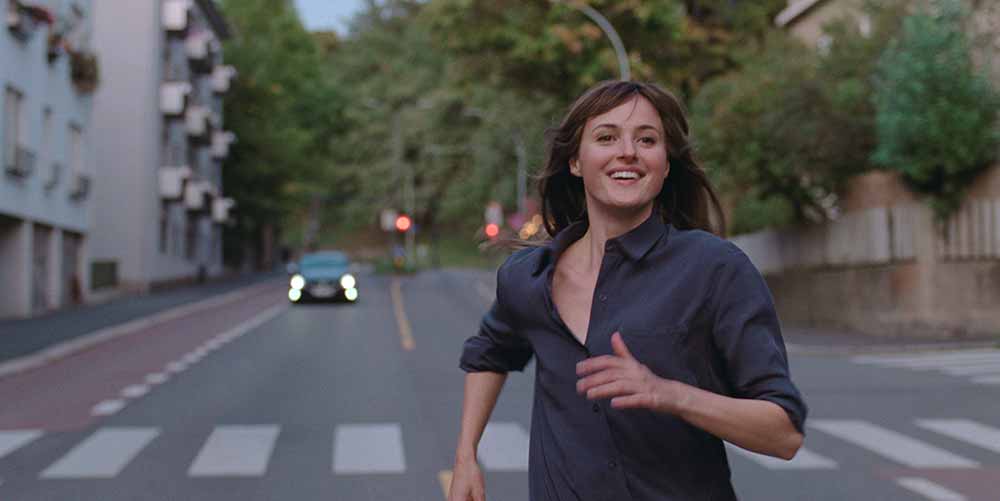
In July, Norwegian actress Renate Reinsve took home the Cannes Best Actress Award for The Worst Person in the World. It’s easy to see why: this is a star-making turn. In her breakout role, Reinsve gets to play many different facets of her character, Julie, who is constantly trying to reinvent herself and find her path in life. The film is a close character study told in twelve chapters, a prologue, and an epilogue. Each focuses on different aspects of Julie’s life, from falling in love, the pressure to have kids, toying with different creative and career paths, coping with break ups, dealing with her neglectful father, and more. Julie is a woman who’s smart, bubbly, and always open to new experiences; Reinsve is vulnerable, funny, and heartbreaking in the role. Even as Julie is unsure of how she is, Reinsve always keeps her intelligence, wit, and charm in full focus. OS
Owen Teague, Montana Story
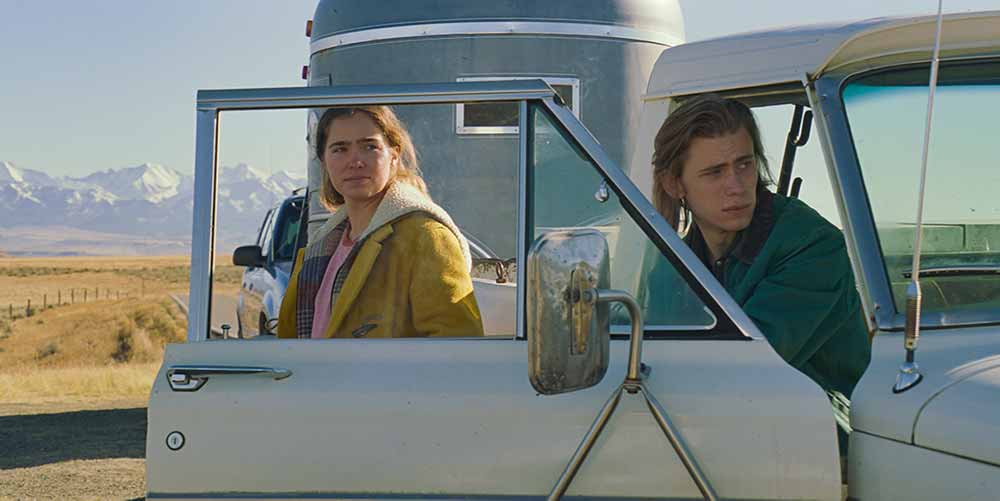
At just twenty-two, Owen Teague already has several supporting credits in high-profile projects: films, such as It (2017), and TV shows including Bloodline (2015-2017) and Black Mirror (2017). Montana Story announces him as a compelling leading man. The film is a two hander between his character, Cal, and Cal’s sister, Erin (Haley Lu Richardson), as they revisit old wounds while their father is dying. The very talented Richardson shines so bright in the film that she threatens to overshadow the rest of the cast, but Teague impressively stands his ground. Cal is the less emotionally volatile of the pair; while Erin’s emotions are passionately expressed, her anger fresh and boiling, Cal is holding onto a lot of pain and guilt that he’s afraid to openly acknowledge. Teague manages to balance quiet stoicism with sensitivity and a sense that there’s more to Cal than he lets on. OS
Stay in the know about TIFF 2021.
Subscribe to Seventh Row’s TIFF newsletter.
We’re running a daily newsletter during the festival: every morning, we’ll send subscribers a dispatch about all the new films we’re watching, good and bad, to let you know what’s worth keeping an eye on.
Click here to subscribe to the TIFF 2021 newsletter.


